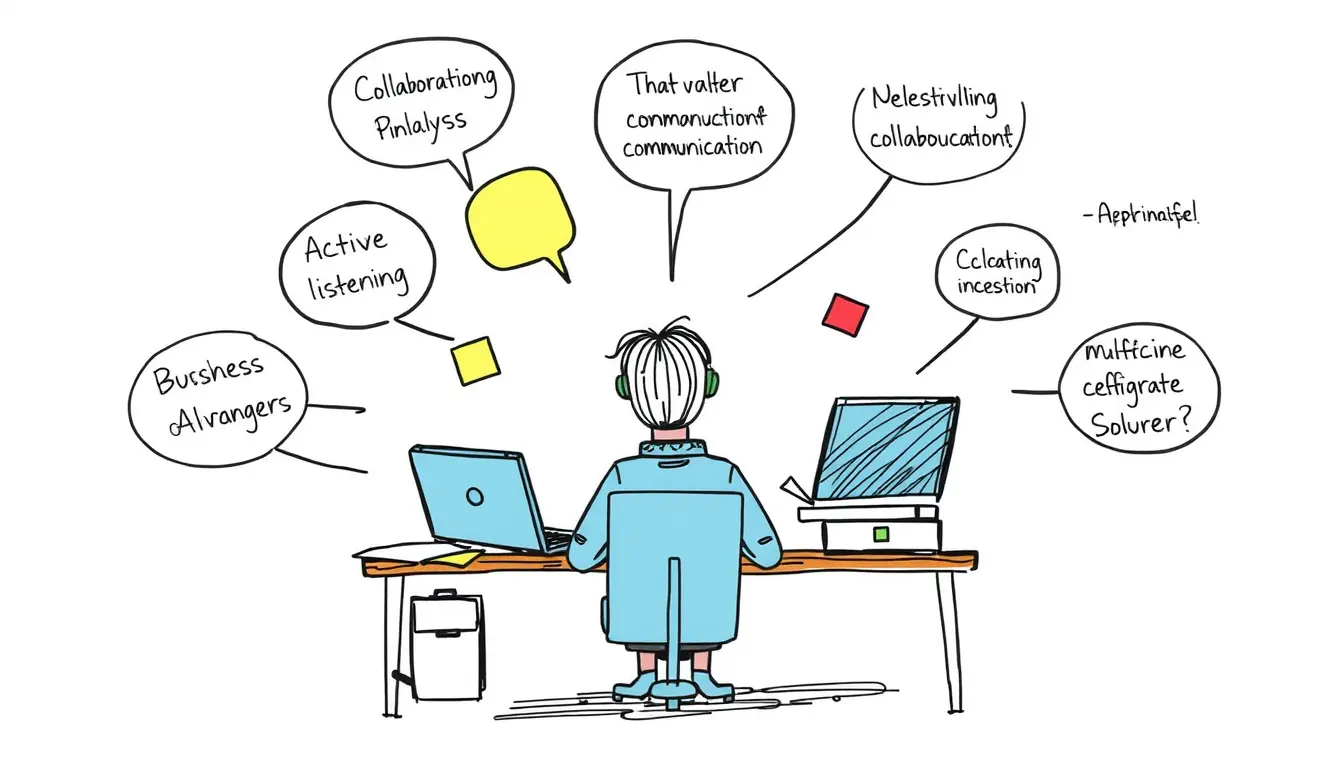Welcome to the world of business analysis where communication is key. As a business analyst, your role requires you to communicate effectively with various stakeholders, including clients, developers, and project managers. Effective communication helps you understand the requirements and goals of the project, and it ensures that everyone is on the same page. In this article, we will discuss some effective communication skills that business analysts can use to succeed in their role.
The Importance of Active Listening
One of the most important communication skills for business analysts is active listening. Active listening means paying attention to what someone is saying, asking questions, and clarifying your understanding. It helps you understand the needs and requirements of your stakeholders better. When you are actively listening, you are not just hearing words, but you are also paying attention to non-verbal cues like body language and tone of voice. This skill helps you build trust with your stakeholders, and it ensures that everyone is on the same page.
Clear and Concise Communication
Effective communication also means being clear and concise. As a business analyst, you need to be able to communicate complex ideas in a simple and understandable way. You should avoid using technical jargon and use simple language instead. It’s essential to be clear about the goals and requirements of the project, so everyone is on the same page. You can also use visuals like diagrams and charts to help illustrate your points.

Effective Communication Skills for Business Analysts
Effective Written Communication
Business analysts also need to have excellent written communication skills. You will be responsible for writing project requirements, reports, and other documentation. It’s essential to be clear and concise in your writing and avoid using technical jargon. You should also use headings and subheadings to organize your writing and make it easier to read. Make sure to proofread your work for errors and ensure that it’s easy to understand.
Building Relationships with Stakeholders
As a business analyst, you will be working with various stakeholders, including clients, developers, and project managers. Building relationships with these stakeholders is crucial to the success of the project. You should take the time to understand their needs and requirements and build trust with them. It’s important to be responsive to their needs and keep them informed of the project’s progress.
Key Takeaway
Effective communication is essential for business analysts to succeed in their role. Active listening, clear and concise communication, effective written communication, and building relationships with stakeholders are all important skills that business analysts should have.
FAQ
What are the most important communication skills for business analysts?
The most important communication skills for business analysts are active listening, clear and concise communication, effective written communication, and building relationships with stakeholders.
How can business analysts improve their communication skills?
Business analysts can improve their communication skills by practicing active listening, using clear and concise language, writing effectively, building relationships with stakeholders, and seeking feedback from others.
Why is effective communication important for business analysts?
Effective communication is essential for business analysts because it helps them understand the needs and requirements of their stakeholders better. It also ensures that everyone is on the same page and helps build trust with stakeholders.
What are some common communication mistakes that business analysts make?
Some common communication mistakes that business analysts make include using technical jargon, not being clear and concise, not actively listening, and not building relationships with stakeholders.













Leave a Reply